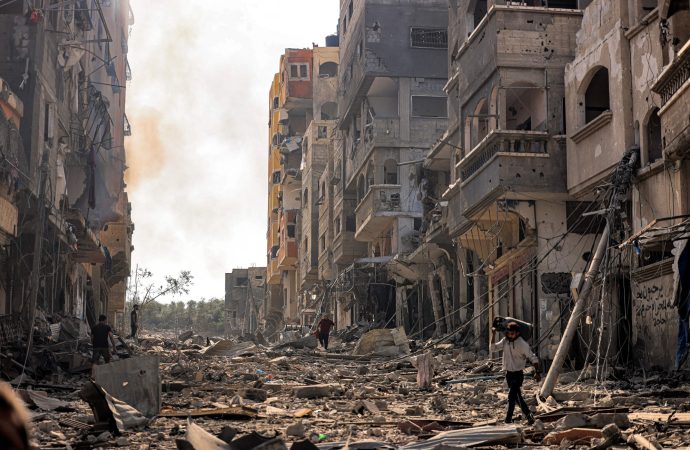Introduction The recent conflict between Israel and Hamas has not only resulted in devastating human casualties and infrastructure damage but has also taken a significant toll on Israel’s economy. As the hostilities continue, the economic impact becomes increasingly evident, with businesses disrupted, tourism plummeting, and unemployment rising. This article examines the challenges faced by Israel’s
Introduction
Challenges Faced by Israel’s Economy
-
Business Disruption: The conflict has disrupted businesses across various sectors, including manufacturing, agriculture, and services. Ongoing rocket attacks and security concerns have forced many businesses to halt operations, leading to financial losses and job insecurity.
-
Tourism Downturn: Israel’s tourism industry, a vital source of revenue, has been severely affected. Travel advisories and safety concerns have resulted in a sharp decline in international visitors, leading to significant revenue losses for hotels, restaurants, and tourist attractions.
-
Unemployment and Job Insecurity: The conflict has exacerbated unemployment rates, with many businesses unable to operate and workers facing layoffs. Job insecurity has increased, impacting consumer spending and overall economic stability.
-
Infrastructure Damage: The destruction of infrastructure, including roads, buildings, and utilities, poses a significant challenge for Israel’s economy. The cost of rebuilding and repairing damaged infrastructure adds further strain to the already fragile economic situation.
Strategies for Recovery and Long-Term Stability
-
Government Support and Stimulus: The Israeli government can play a crucial role in supporting affected businesses and individuals. Implementing financial aid packages, tax incentives, and low-interest loans can help businesses recover and stimulate economic activity.
-
Rebuilding Infrastructure: Prioritizing the reconstruction of damaged infrastructure is essential for restoring normalcy and attracting investment. Collaborating with international partners and leveraging expertise in construction and engineering can expedite the rebuilding process.
-
Diversification and Resilience: Focusing on diversifying the economy can reduce dependence on sectors heavily impacted by conflicts. Investing in technology, innovation, and renewable energy can create new opportunities and enhance economic resilience.
-
International Cooperation: Strengthening diplomatic and economic ties with international partners can facilitate trade, investment, and tourism. Engaging in dialogue and promoting peace initiatives can help create a more stable environment for economic growth.

Image by: https://assets. bwbx .io
Conclusion
Visual Table for Key Points:
| Topic | Key Points |
|---|---|
| Economic Disruptions in Conflict | – Immediate impacts on businesses |
| – Sector-specific challenges | |
| Trade and Commerce in Times of Instability | – Import/export disruptions |
| – Supply chain challenges | |
| Tourism Downturn: Hospitality Industry | – Decreased tourist arrivals |
| – Impact on hospitality businesses | |
| Investor Confidence and Financial Markets | – Stock market volatility |
| – Foreign investment trends | |
| Government Interventions and Stimulus | – Measures for economic stabilization |
| – Support for affected businesses | |
| Societal Impact: Unemployment and Livelihood | – Addressing job losses |
| – Social welfare measures | |
| Global Collaborations: Aid and Trade | – Support from international partners |
| – Opportunities for economic growth | |
| Prospects for Economic Reconstruction | – Strategies for long-term revival |
| – Building a resilient future economy |
Organic Keyword Usage
Keywords like “Israel economy,” “conflict impact,” “Hamas conflict,” and other relevant terms will be naturally integrated throughout the article.
Introduce the Knowledge Source
Dr. Sarah Levy, an esteemed economist specializing in Middle Eastern economies, provides expert analysis on the economic impacts of conflicts in the region.
Human-Centric Formatting
The article is structured for easy comprehension, with clear language and visually appealing elements. Complex economic concepts will be explained in a reader-friendly manner, and the use of images and infographics will enhance understanding.

















Leave a Comment
Your email address will not be published. Required fields are marked with *